Alan J. Pakula: The King of Paranoia
 Sunday, August 30, 2020 at 5:00PM
Sunday, August 30, 2020 at 5:00PM 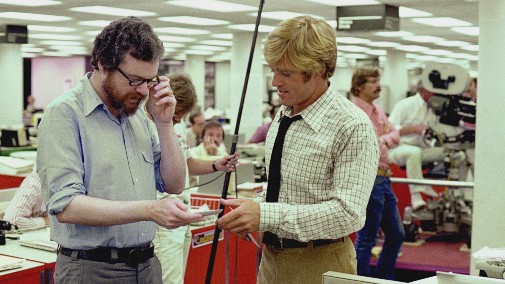
This summer, several of Warner Bros. classics have become available to stream on HBO Max. Among them are a good variety from the 1970s, including some of the best movies of New Hollywood's most underrated master of cinema. We're talking about Alan J. Pakula, a director whose pictures came to embody the mood of that decade, full of misanthropic discontentment and a sense that the world is diseased, people are out to get you and safety is unachievable. Alan J. Pakula was truly the king of cinematic paranoia…
Before he became a director, Pakula was a producer whose movies, while far from pushing the boundaries of the artform, were well-received and appreciably successful. He worked regularly with director Robert Mulligan and, nowadays, To Kill a Mockingbird is probably the best remembered of their collaborations. The professional relationship between these men fizzled out as the 60s reached their end, which propelled Pakula to try his hand at directing. He proved to be a natural.
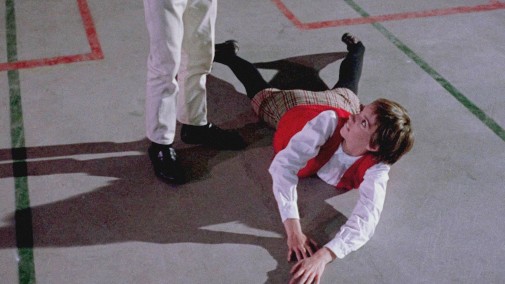
The Sterile Cuckoo, originally released in 1969, was his debut feature and it managed to earn quite a fair share of attention. Mostly, that was caused by Liza Minnelli's fearless performance as a neurotic dissection of what we'd now call a Manic Pixie Dream Girl. It's an amazing feat of acting, febrile but sharp, anchoring the entire project in a sort of psychological acuity that Pakula would make sure to bring to his future projects. More than anything, the film showcases brilliant direction of actors and how the form can shape performances in surprising ways.
Throughout the movie, Pakula is weirdly stingy when it comes to close-ups, shooting this actor-focused picture with the camera far away from said actors. This stops the audience from identifying too much with the characters, guiding them into a mood of cold observation. It's a subtly daring approach that turns melodrama into something abrasively cerebral. This counterintuitive methodology would percolate throughout Pakula's 70s output, but it culminated early on with what is, perchance, the director's most influential movie.
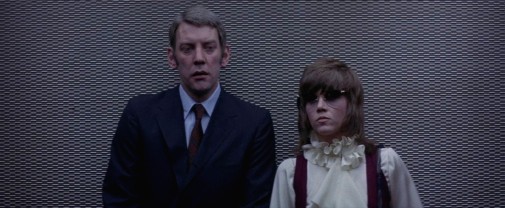
Jane Fonda's performance as Bree Daniels is rightfully legendary, but it has defined the legacy of Klute a little bit too much. The 1971 picture's a masterpiece whose gloomy aesthetic, atmosphere of urban decay and psychoanalytical take on character development would come to define a decade of American cinema. Moreover, it was the project that united Pakula with his most important artistic partner, cinematographer Gordon Willis.
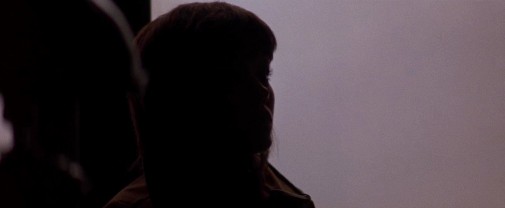
Together, the King of Paranoia and the Prince of Shadows shot Klute in deep penumbra, often reducing Fonda's exacting presence to a faint outline and the glint of a faraway light in her eye. Performance and cinematic form thus exist in perfect symbiosis. Fonda gives the movie her everything and the movie philters it, sharpening its edges until it draws blood. Her shadowy close-ups, in particular, suggest a malignant way in which New York City and its murkiness consume the lead character. It's positively vampiric.
After this pair of psychological dramas, Pakula made one of his lightest pictures with 1973's The Love the Pain and the Whole Damn Thing starring Maggie Smith and Timothy Bottoms. The flick's atypical for its director, although it features one of his early trademarks – an excellent performance by its leading actress. Such a calling card would be undercut by his following career-defining films, however. Quickly returning to the darkness that characterized Klute, Pakula made his magnum opus in 1974.
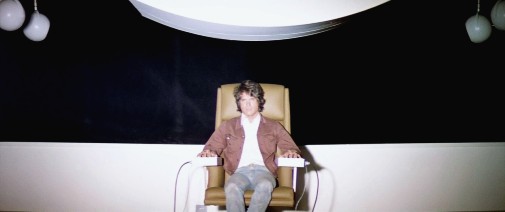
The Parallax View is paranoia synthesized in celluloid, a political intrigue that invokes a foreboding quality so intense it's almost a sentient being, as much a protagonist as Warren Beatty's fearful journalist. It's also Pakula's most abstract movie with a psychedelic montage in the middle that is enough to make someone believe in the diabolic magic of cinema. His follow-up, All The President's Men was no less perfect, canonizing recent history in the shape of a tight thriller. Pakula's proved that he could make films that both provoke and entertain, unnerve and thrill in equal measure.
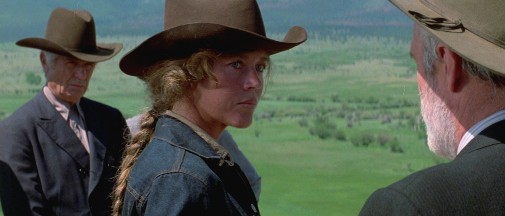
1978's Comes a Horseman was the last of Pakula's run of virtual masterpieces. Reuniting the director with Jane Fonda, the picture's a mournful take on the western that strips romanticism out of the genre and substitutes it with a marrow-deep melancholy. It's also wonderfully shot by Gordon Willis, but so is every film ever shot by the genius cinematographer. 1979's romantic comedy Starting Over was less inspiring, but a success, and it added another Best Actress nomination to Pakula's filmography, this time for Jill Clayburgh.
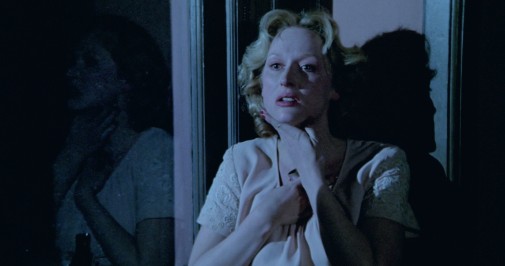
The 80s proved to be the period of Pakula's downfall. After the era-defining trilogy of paranoia that is Klute, The Parallax View, and All the President's Men there was nowhere else to go but down, but Pakula fell hard. Still, his talent for directing great actresses to even greater performances remained. After all, he's the guy who directed Meryl Streep to her much-celebrated first Best Actress Oscar for 1982's Sophie's Choice. As previously discussed, the movie might be mediocre, but Streep's performance sure isn't.
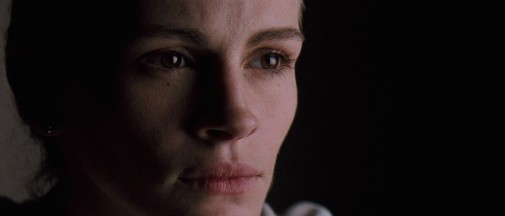
As the decade of greed died out, Pakula saw some new successes and the 1990s proved to be a period of mild revitalization. Presumed Innocent has its fans and The Pelican Brief is a paranoia thriller made with utmost craftsmanship by its director. Still, considering all the greatness of his 70s output, it's a pity that Pakula's last project was the flotsam 1997 The Devil's Own where Brad Pitt puts on one of the most ridiculous Irish accents ever recorded. Worse still, the director didn't have his heart in the project having been hired as a hack rather than an auteur.
On November 19, 1998, Alan J. Pakula died in a car accident. He left behind a great legacy. Not all his movies were excellent, but those that were are among the best American pictures ever made. Let’s celebrate that.
Klute, The Parallax View, All the President's Men, Sophie's Choice, and Presumed Innocent are available on HBO Max. You can find The Pelican Brief and The Devil's Own on Showtime, while Comes a Horseman is on Prime. The director's first picture, The Sterile Cuckoo, is available through CBS and Pluto TV.



Reader Comments (6)
I thought Polanski was the king of paranoia.
"Klute" and "The Parallax View" are both great thrillers with more on their mind than just thrills.
I thought Peggy Sue was the king of paranoia JK.
I’m that rare person who loved Starting Over and thought Sophie’s Choice was okay. Consensus seems to be that people despise or really dislike the film outside of Streep’s indisputably great performance.
Wonderful article on a true artist.
Of all his films All the President's Men will always remain my favorite but he was a master of paranoia. Despite Sydney Pollack's excellent direction I always wondered what Pakula could have done with that other great paranoid thriller Three Days of the Condor. It just seems so in his wheelhouse.
I hate the whole Manic Pixie Girl thing but perhaps since it wasn't meant to be that way or a combination of Liza's & Pakula's skill The Sterile Cuckoo's Pookie Adams never annoyed me the way the others do, though she is quite different from the character in the book.
I need to revisit The Parallax View. I thought it was well made when I saw it but had a hard time getting into the narrative.
Of his later films I really liked Presumed Innocent, he elicited a wonderful performance from Bonnie Bedelia, but hated The Pelican Brief. The Devil's Own is a mess.
But his 70's output is simply stellar.
Starting Over is such a fun film, and he gets good performances out of all of the actors. Candice Bergen, in particular, is a ton of fun and a great example of how he never let any moment pass.
All the President's Men is truly a rewatchable masterpiece and Klute never fails to thrill. I'll admit, even the Pelican Brief was good. What a great director.
Given how many great female performances are in his films, it's a wonder he's not considered more of a "woman's director" like others (Cukor, etc). Though, obvious why.
Pelican Brief is my favorite, extremely rewatchable which the other ones mentioned are harder to rewatch given the material and anxiety they entail.